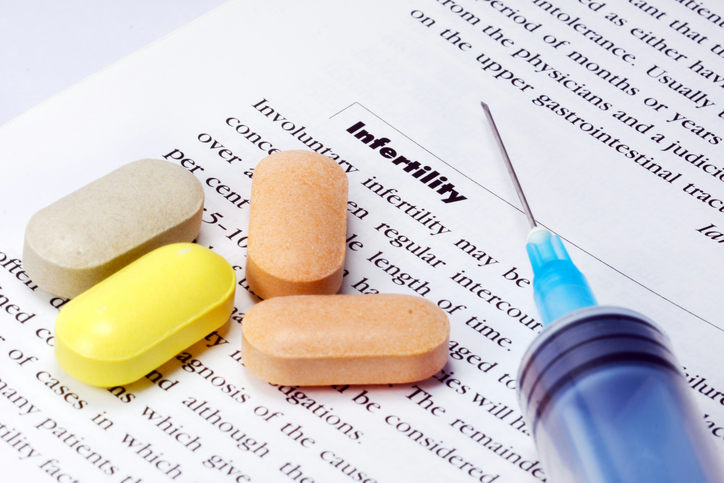Fertility treatments particularly IVF, are a household name and have enabled so many couples to become parents. IVF cycles although highly successful, sometimes fail.
Indeed one of the more difficult challenges to cope with after the highs and lows of infertility treatment is receiving the news that the whole process has not worked.
It is usually a devastating blow for instance when an IVF cycle fails to either produce conception or ends in miscarriage. As a couple, you are bound to react to such incidence in many ways that may surprise even you. Women are known to react unpredictably to failed cycles, or a miscarriage after fertility treatment or an ectopic pregnancy.
When you get a negative result, it could be like the end has come and going on becomes an uphill task. But in truth, it is not the end and you can and you will go on.
For you and your spouse, even sometimes the two-week wait for the results of your fertility treatment, could turn out to be one of the hardest parts of your treatment efforts.
It is not unusual to be extremely anxious to find out whether your treatment has worked or whether it has not, especially if you saw the process as your last chance to have your own biological child.
You could find the wait particularly nerve-wracking as you probably might have known exactly when your baby had been conceived and what day that you could find out if the pregnancy had worked. It might have been possible that you often analyzed every sign and sensation.
Although you put on a brave face, inside you probably “died a thousand deaths.” A failed IVF cycle can unleash an overwhelming torrent of emotions. Going into the cycle, you probably felt anticipation and building excitement, hoping this will be when your family starts, and you probably also expressed worry at the same time. Will it work? When a cycle fails, you and your partner may feel grief and even anger. There are many questions but few answers. What went wrong? Is it someone’s fault that IVF didn’t work? Should you try again?
It’s normal to grieve for the loss but know and accept that it is not your fault. Chances are that the failure is not due to anything you could control.
It helps to find out what went wrong. One very common reason why an IVF cycle fails is embryo quality.
Many embryos are not able to implant after transfer to the uterus because they are flawed in some way. Even embryos that look good may have defects that cause them to die instead of growing. I
So do not be thinking that the fault is with your uterus.
In most cases, it’s not that your uterus has something wrong with it so you can’t carry a baby. The problem is that the embryo doesn’t implant because it is not healthy enough to grow.
Another common cause is the age of the eggs. For the success of an IVF cycle, the age of the eggs is more important than the age of the woman having IVF treatment. The quality and quantity of your eggs, known as your ovarian reserve, begin to get worse as you age. This affects your chances of success with IVF as well.
On average, only about 25 percent of transferred embryos go on to result in live births of babies. But this greatly depends on the age of the eggs. If you are under 35 and using your own eggs for IVF, you have an implantation rate of about 45 percent.
If you are up to 42 years old and using your own eggs, you have only about a 15 percent chance of implantation.
Older women who use eggs donated by younger women have success rates with IVF that are nearly the same as those of younger women. Egg quality is all-important to having healthy embryos, and younger eggs usually have better quality.
Sometimes your ovaries don’t respond to fertility medications strongly enough to produce multiple eggs. This could happen especially if you are over 37 or have higher than normal FSH levels, you may not produce enough eggs to result in a number of embryos for screening and potential implantation. Chances are higher that IVF will fail when this happens.
Chromosomal abnormalities that occur in the embryo also limit success rates and the abnormalities are the reason behind most miscarriages as well as failure to implant in an IVF cycle. As you age, the incidence of chromosomal abnormalities in your eggs begins to increase. By the mid-40s as much as 75 percent of your eggs have chromosomal abnormalities. A man’s sperm develops more chromosomal abnormalities as he ages as well, but at a much lower rate than a woman’s eggs.
If you’ve had a failed IVF cycle, your fertility specialist may recommend a procedure known as preimplantation genetic screening (PGS) for your next IVF cycle. PGS tests a few cells from an embryo to determine if the correct number of chromosomes are present. The quality of the fertility clinic also matters.
Your health and the health of your partner matter a lot. As a couple, you need to be in optimal health before starting IVF treatment. Do not smoke, avoid being overweight or underweight by maintaining a healthy weight. If you are overweight, losing as little as 10 percent of your body weight can make a positive difference in your ability to get pregnant.
Many women do talk about the grief they feel after a failed cycle. It is okay to talk. When you talk, you are not only grieving for the potential baby that you just lost, but also for the loss of your expected future as a parent and family. As a woman, you may end up describing each month that passes as a failure and kind of bereavement. Grieving for the loss of the life you and your husband imagined you were going to have together. You should also appreciate that it is hard for people to understand.
When your treatment is finally successful and you have your child, you feel fulfilled, but you may still describe the grief that you, and everyone around you, felt when your earlier efforts failed.
Many women find that their grief started very early on, and carried on through their failed cycles and miscarriages. Naturally, you may not feel that you will forget the grieving and loss, but the fact that you have achieved success, at last, compels action.





